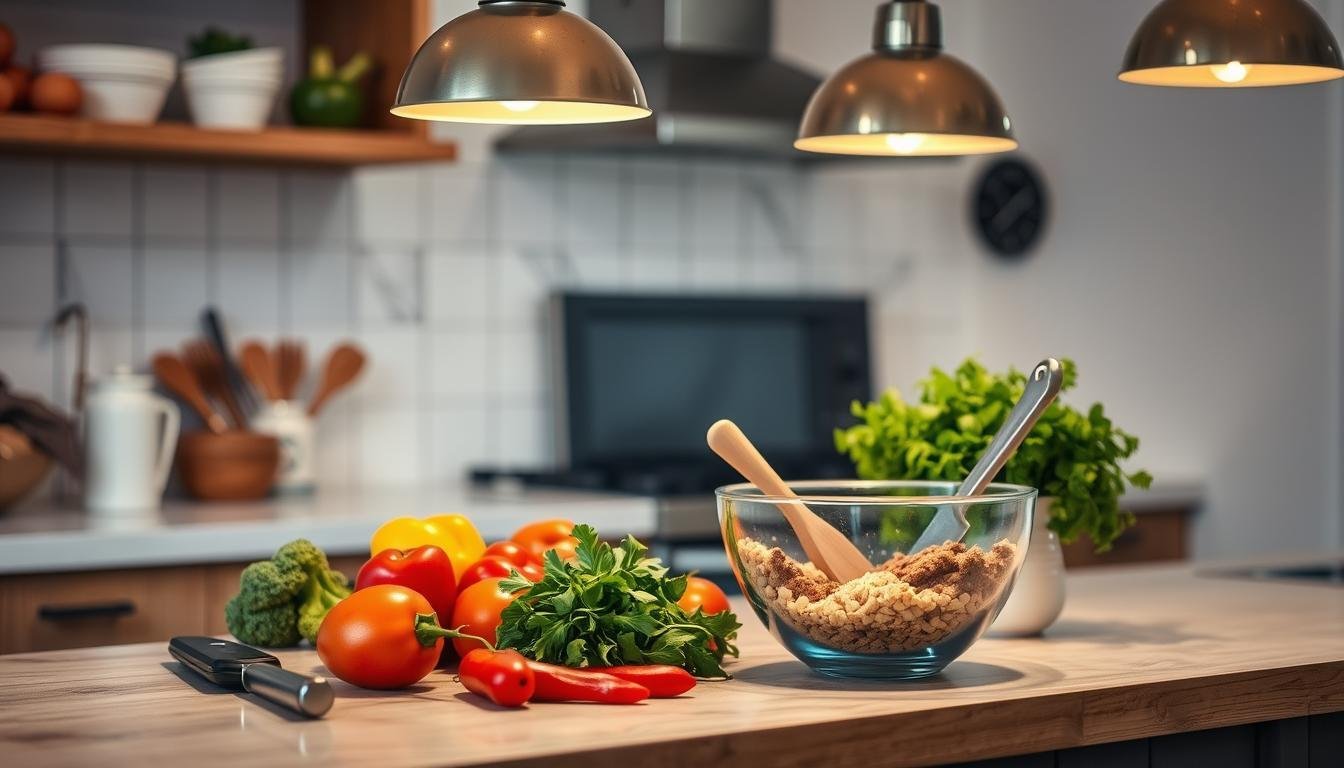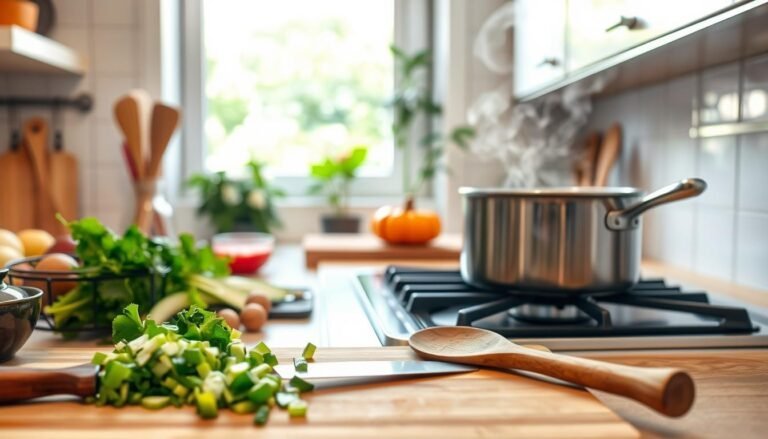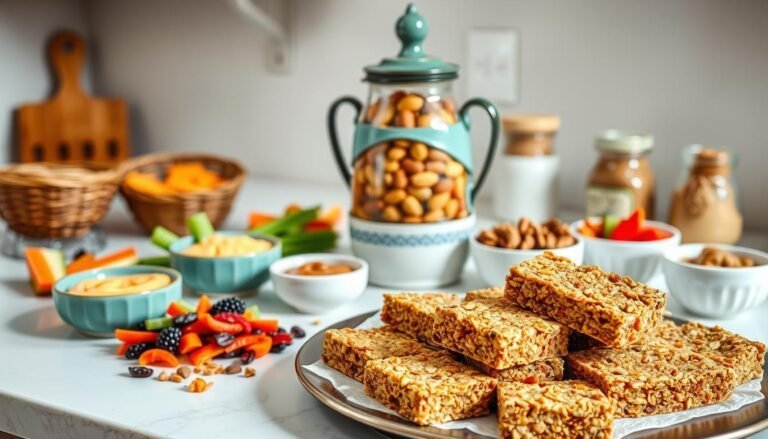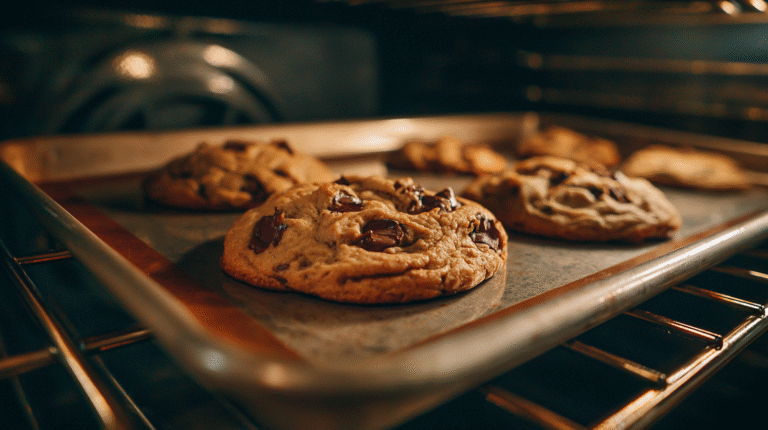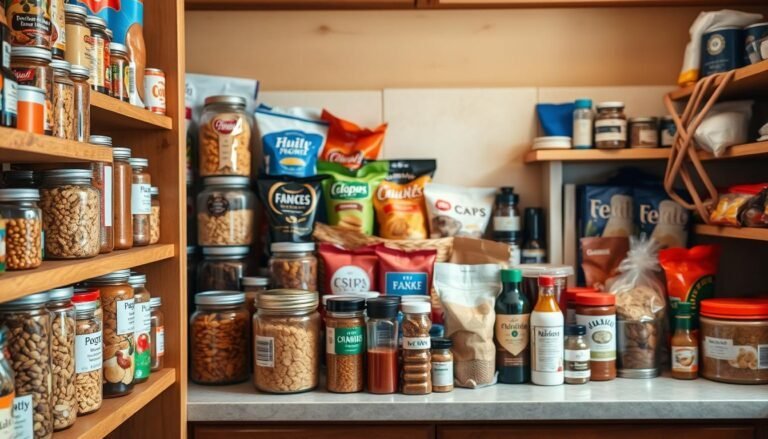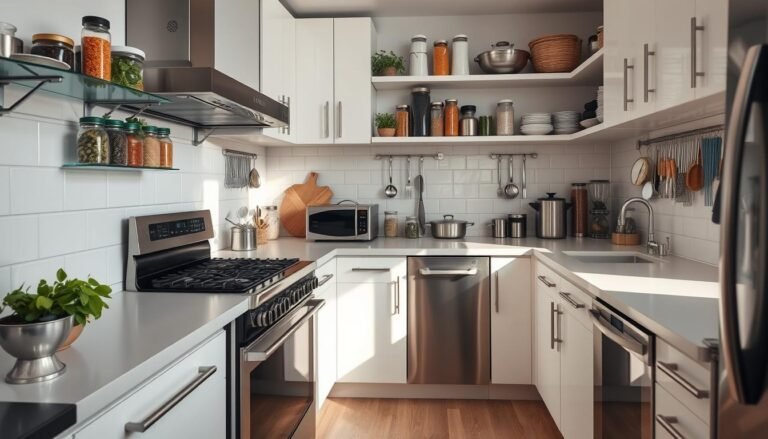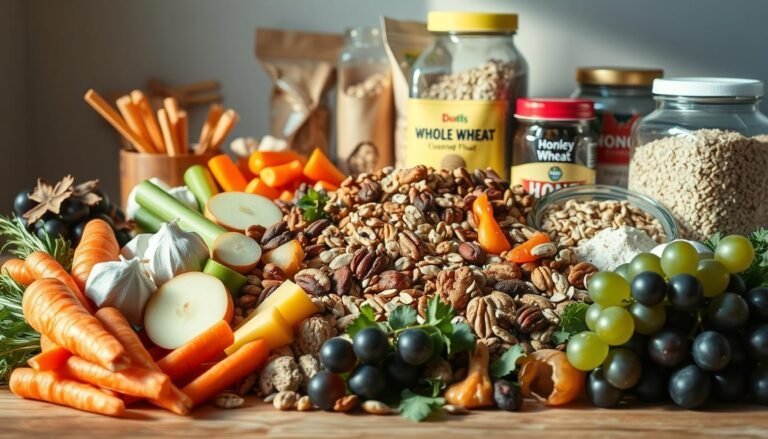Disclosure: This Post Contains Affiliate Links; We earn a commission on purchases.
Cooking is a powerful skill that makes you independent. It helps you eat healthier. For new cooks, learning to cook is a big change.
Beginners should start with easy recipes. Then, they can try harder dishes. This way, they get better and feel more confident in the kitchen.
Cooking at home lets you choose what you eat. You can pick the right foods and the right amounts. This helps you live a healthier life. Learning to cook means you can make better food choices.
Key Takeaways
- Cooking promotes independence and healthy eating habits.
- Starting with simple recipes helps build confidence.
- Practicing cooking skills leads to proficiency.
- Home cooking allows control over meal ingredients and nutrition.
- Developing cooking skills enables informed dietary choices.
The Journey Begins: Overcoming First-Time Cooking Anxiety
Starting to cook is more than just following recipes. It’s about gaining kitchen confidence. Beginners often feel a mix of emotions, from excitement to fear.
Common Fears in the Kitchen
First-time cooks worry about making mistakes. They fear overcooking or underseasoning. But remember, mistakes are part of learning to cook.
Setting Realistic Expectations
Start with simple recipes. Then, move to more complex dishes. Use cooking tips for beginners to help you.
The Mindset for Culinary Success
Having a positive mindset is key. See cooking as a skill to develop over time. This helps you enjoy cooking more.
Essential Kitchen Tools for the Beginner Chef
As a beginner chef, knowing the must-have tools is key. The right equipment makes cooking fun and helps you cook better. It lets you use cooking techniques with ease.
Must-Have Utensils and Equipment
To begin, get the basics:
- A sharp chef’s knife for precise cutting
- A sturdy chopping board for safe food preparation
- A good-quality frying pan or skillet for versatile cooking
- Measuring spoons and cups for accurate ingredient measurement
These tools are essential for making easy recipes for beginners. They are your main tools for many dishes.
Budget-Friendly Alternatives
You don’t have to spend a lot on kitchen tools. Here are some affordable options:
- Shop during sales or use coupons for brand-name products
- Explore second-hand stores or online marketplaces for gently used kitchenware
- Opt for multi-functional tools that can serve more than one purpose
These tips help you build your kitchen without spending too much.
Organizing Your Kitchen Space
An organized kitchen makes cooking easier. Here are some tips:
- Assign a specific place for each tool to maintain order
- Use storage solutions like drawer dividers or hanging racks
- Keep frequently used items accessible
Organizing your kitchen lets you focus on cooking techniques more. You won’t waste time looking for tools.
Stocking Your Pantry: Beginner-Friendly Ingredients
Having a pantry full of essential ingredients is key to cooking with confidence. A well-stocked pantry helps beginners try out many recipes easily.
Versatile Staples Every Kitchen Needs
Every kitchen needs staple ingredients for many dishes. These include:
- Rice and pasta for simple carbohydrates
- Canned goods like beans and tomatoes
- Olive oil for sautéing and dressings
- Basic spices such as salt, pepper, and garlic powder
These basics are the foundation of many meals. Adding fresh ingredients makes dishes even more flavorful.
Fresh vs. Frozen: Making Smart Choices
Choosing between fresh and frozen ingredients depends on the ingredient and its use. Fresh ingredients are best for dishes needing texture and flavor. Frozen options are nutritious and convenient.
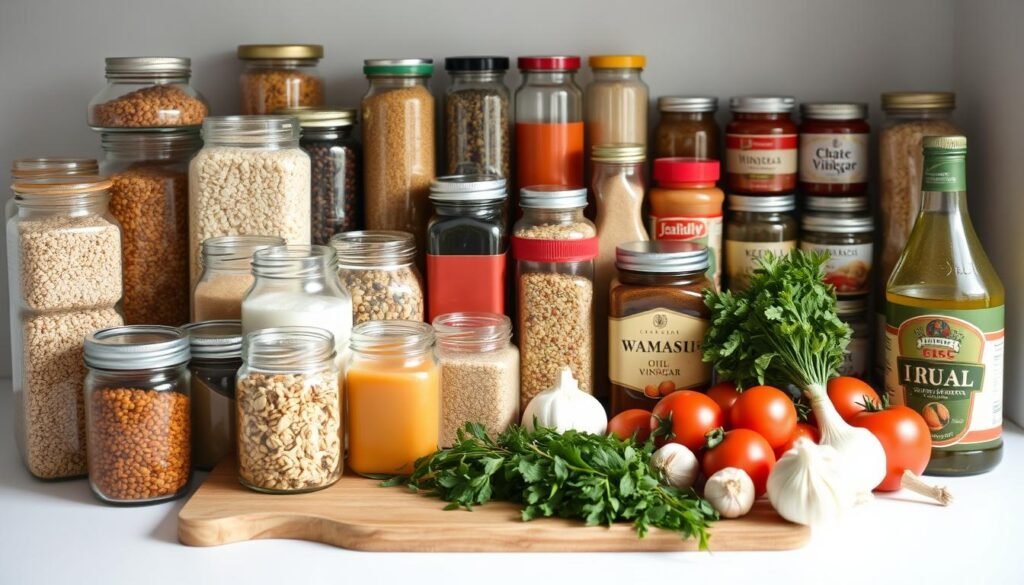
Building Flavor with Herbs and Spices
Herbs and spices add depth to dishes. Start with basics like basil and oregano, and spices like cumin and paprika. Trying different mixes helps develop your cooking style and boosts cooking skills.
Stocking your pantry with the right ingredients boosts kitchen confidence. It also improves your cooking skills.
First-Time Cook Confidence: Building Skills One Bite at a Time
Learning to cook takes time, patience, and practice. Mastering simple skills opens up a world of tasty, healthy meals. You can make them right in your own kitchen.
The Progressive Learning Approach
Start with basic recipes and techniques. Then, slowly add more complex ones as you get better. This step-by-step learning makes it easier to grasp cooking basics.
Celebrating Small Victories in the Kitchen
It’s important to celebrate every small win. Each dish you make, no matter how simple, boosts your confidence. Remember to praise yourself and don’t get too upset about mistakes. They’re chances to learn and grow.
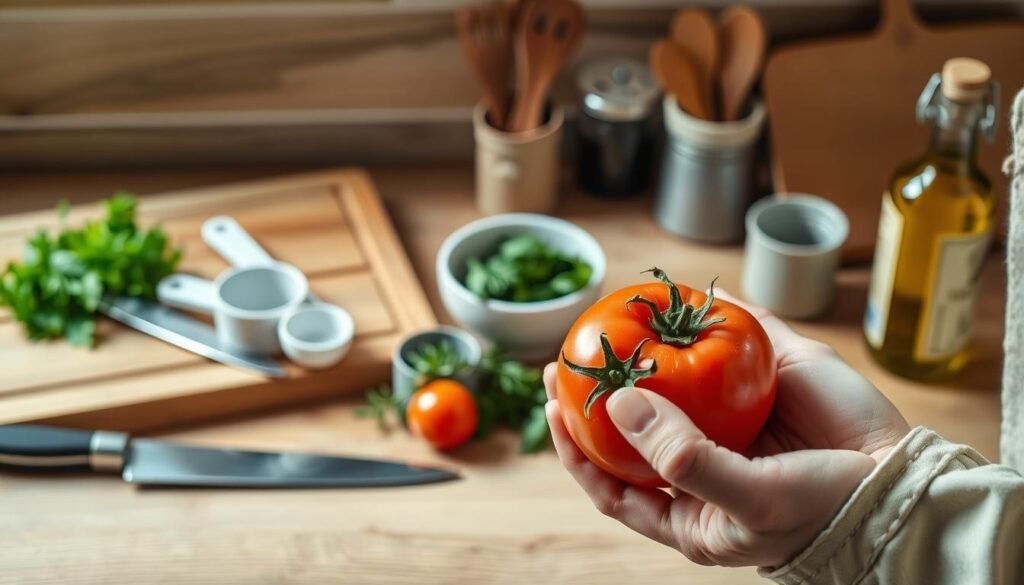
Finding Reliable Recipe Resources
For beginners, finding good recipes is key. Look for ones with clear steps and few ingredients. Websites and books for easy recipes for beginners are great starting points. Trying out different recipes helps you learn new techniques and build your cooking skills.
By following a progressive learning path, celebrating your wins, and using trusted recipe sources, you’ll improve your cooking. Remember, the fun of learning to cook is the journey itself.
Mastering Basic Cooking Techniques
Great cooking starts with basic techniques. These skills boost your confidence and dish quality.
Knife Skills and Food Preparation
Good knife skills are key for prep. You need to know how to chop, slice, and dice right. This makes your ingredients even.
Understanding Heat and Cooking Methods
Cooking methods change with heat and technique. Knowing these is vital for your dish’s success.
Sautéing and Stir-Frying
Sautéing and stir-frying cook fast over high heat. They keep food’s texture and taste. You must watch timing and stir constantly.
Boiling and Simmering
Boiling and simmering use liquid at different temps. Boiling cooks pasta and veggies. Simmering is best for soups and sauces.
Roasting and Baking
Roasting and baking cook with dry heat. They make food taste caramelized and tender. Great for meats and veggies.
Timing and Multitasking in the Kitchen
Good timing and multitasking are key. They make sure all meal parts are ready at once. This makes your meal better.
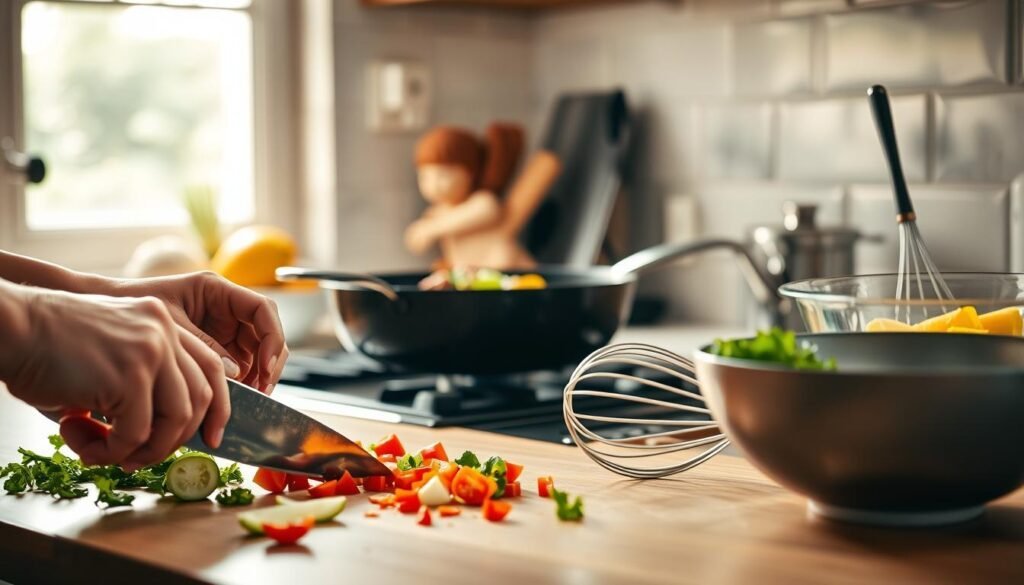
Simple Recipes to Build Your Confidence
Simple, yet impressive recipes are key for beginners. Mastering easy recipes for beginners is vital. It helps build cooking confidence. Starting with easy dishes, beginners learn basic skills and cooking techniques.
Breakfast Basics That Impress
Start with simple breakfasts like scrambled eggs, toast, and fresh fruit. These are beginner-friendly meals. They also let you try different ingredients and combinations.
- Scrambled eggs with spinach and feta
- Avocado toast with poached eggs
- Overnight oats with fruit and nuts
Foolproof Lunch and Dinner Options
For lunch and dinner, try cooking tips for beginners like grilling, roasting, or sautéing. Simple dishes like grilled chicken, roasted veggies, and pasta are great for beginners.
No-Fail Desserts for Beginners
Desserts can seem scary, but not with simple recipes. Try fruit salad, chocolate-dipped strawberries, or no-bake energy balls. These easy recipes for beginners are sure to wow.
One-Pot Wonders for Easy Cleanup
One-pot meals are easy and clean up is a breeze. Recipes like chili, stew, or one-pot pasta are beginner-friendly meals. They’re great for trying out different ingredients.
Adding these simple recipes to your cooking routine boosts confidence. It also lays a solid base for more complex dishes.
Troubleshooting Common Cooking Mistakes
Learning to fix kitchen problems is a key cooking skill. Even top chefs face mishaps. But knowing how to fix common mistakes can save time and reduce stress.
Salvaging Overseasoned Dishes
If you’ve overseasoned your dish, don’t worry. You can fix it by adding yogurt or sour cream. Or, try adding rice or pasta. For too salty dishes, a bit of vinegar or lemon juice can help.
Fixing Texture and Consistency Issues
Texture and consistency problems can be fixed by changing cooking time or method. If your sauce is too thick, add a bit of water or broth. If it’s too thin, simmer it or add cornstarch.
Preventing Burning and Undercooking
To avoid burning, watch your dish closely and adjust the heat. Use a thermometer to check the food’s internal temperature. For undercooked food, just cook it a bit longer.
When to Start Over (And When Not To)
It’s sometimes better to start over if the dish is bad. But if the mistake is small, you might be able to fix it. Trust your instincts and use your kitchen confidence to decide.
By learning these cooking techniques, you’ll get better and more confident in the kitchen. You’ll be able to handle even tough recipes with ease.
Conclusion: Your Culinary Journey Has Just Begun
Building First-Time Cook Confidence takes time, patience, and practice. Start with simple recipes and techniques. This will help you become good in the kitchen.
As you keep learning to cook, see every meal as a chance to get better. Don’t worry about mistakes. They are a big part of learning to cook.
With every new recipe and technique, you’ll feel more confident. Keep trying, stay curious, and enjoy finding out what you can do in the kitchen.
FAQ
What are the essential tools every beginner chef should have?
How do I choose the right ingredients for my recipes?
What’s the difference between fresh and frozen ingredients, and which should I use?
How can I improve my knife skills and food preparation techniques?
What are some common cooking mistakes, and how can I avoid them?
How do I troubleshoot cooking mistakes, such as overseasoning or texture issues?
What are some simple and delicious recipes for beginners?
How can I continue to improve my cooking skills and build confidence in the kitchen?

With a passion for making good food easy, Ryan focuses on tips, tricks, and approachable advice for anyone who wants to eat well without spending hours in the kitchen. Whether you’re prepping lunchboxes, feeding a busy family, or just need something tasty in a pinch, Ryan’s here to help you keep it quick and simple—one bite at a time.
Subscribe to Our Newsletter

